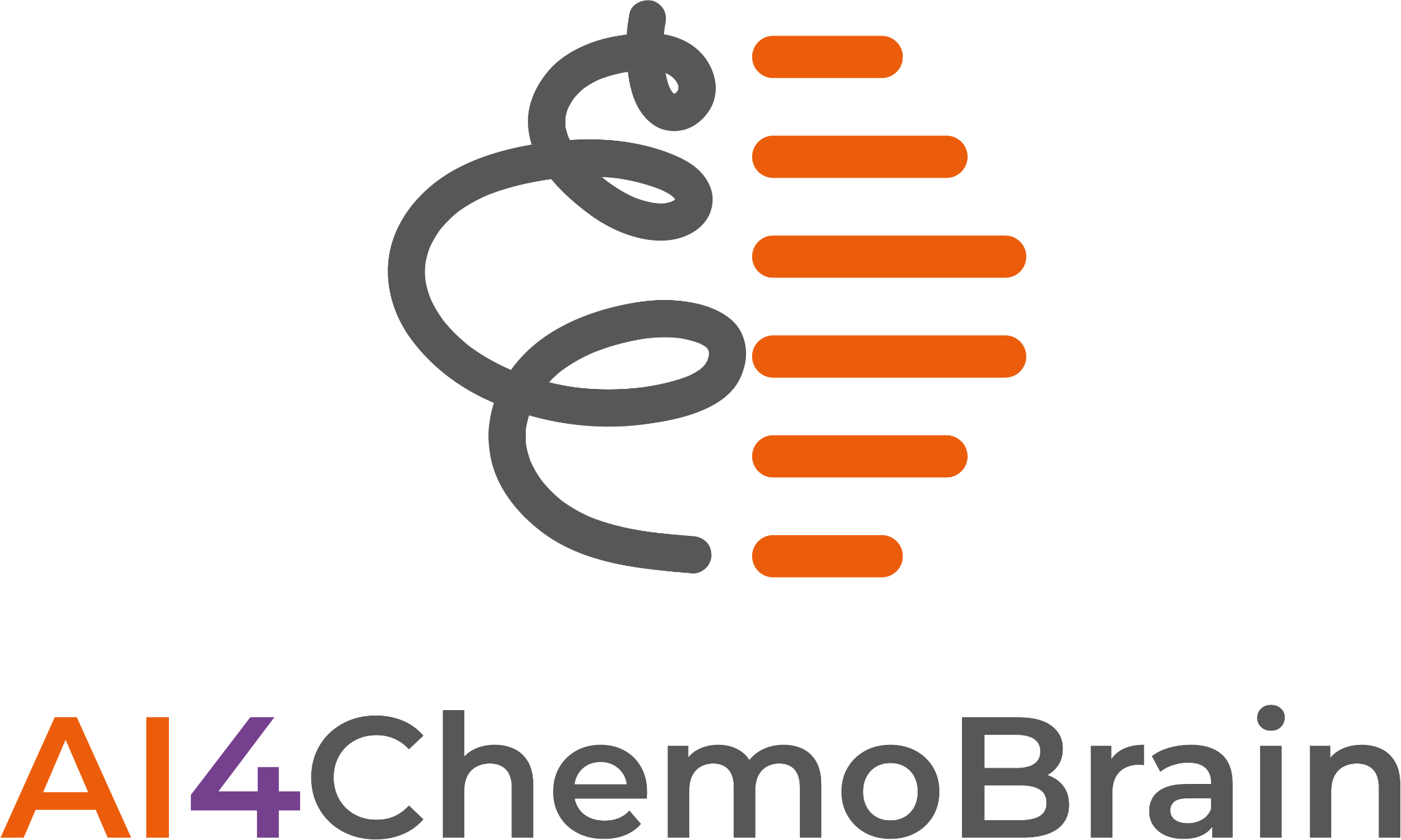
"Cognitive impairment is a debilitating side effect experienced by patients with cancer treated with systemically administered anticancer therapies. With around 19.3 million new cases of cancer worldwide in 2020 and the five year survival rate growing from 50% in 1970 to 67% in 2013, an urgent need exists to understand enduring side effects with severe implications for quality of life." ... "Prevalence of clinically significant cognitive impairment varies between 17% and 78% with self-reported measures, and is approximately 33% using objective neurocognitive testing in post-chemotherapy patients with breast cancer."
Cognitive impairment after cancer treatment: mechanisms, clinical characterization, and management
Fleming, Edison, & Kenny. BMJ 2023
The Project
The AI4CHEMOBRAIN project aims to generate a tool for clinical use to predict the onset of chemobrain based on machine learning/artificial intelligence technologies. The training of the ML/AI models will use descriptive historical data of cognitive decline with a fully traceable life cycle. In addition, the ML/AI models will be validated through the use of murine-based datasets generated ad hoc for the project. The ultimate goal is the transfer of the model to the clinical setting to promote adjuvant therapies and support personalised medicine.
The AI4CHEMOBRAIN project is co-funded by the European Regional Development Fund RP ERDF 2021-2027, ACTION 1.1.2. Emilia-Romagna Region, CUP No E77G22000630007.
SmartData group’s task
The main goals of the SmartData group include the database design for data collection and management of subject-derived omics and phenotypic data; the development of machine learning and deep learning models to predict cognitive impairment during chemotherapy treatment; and the design of the final demonstrator.